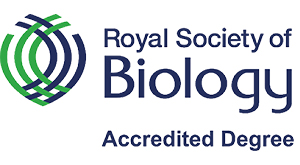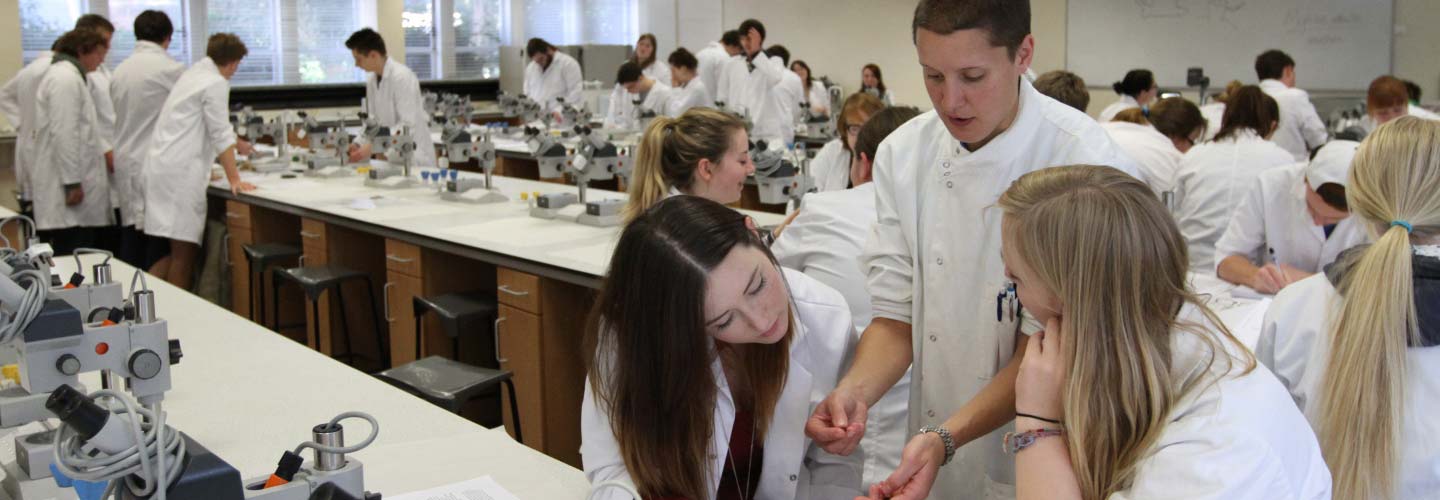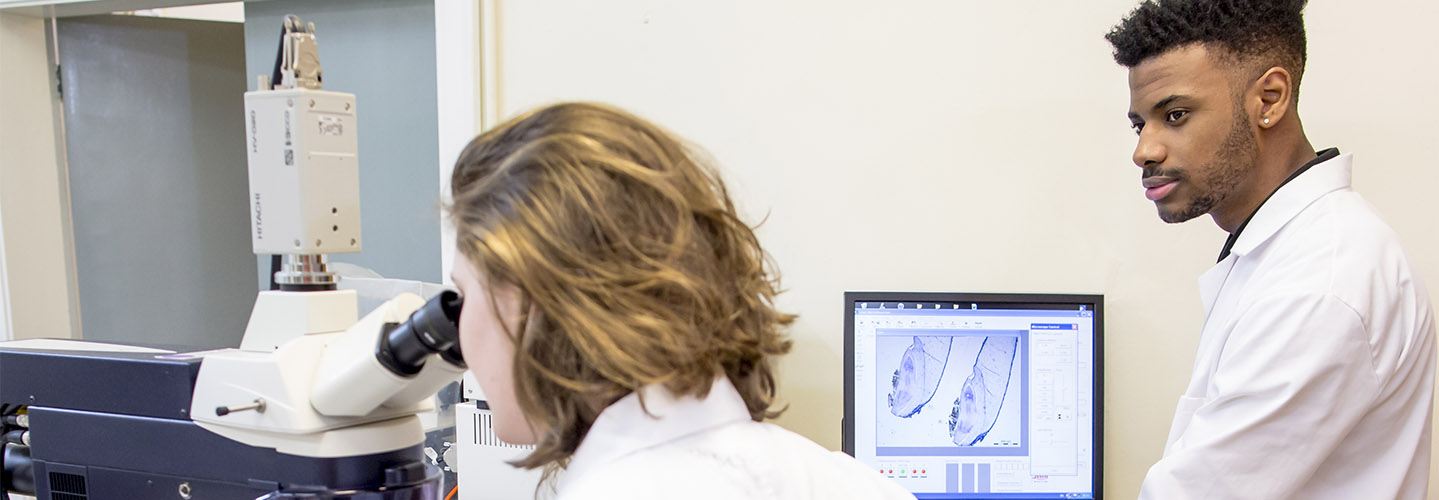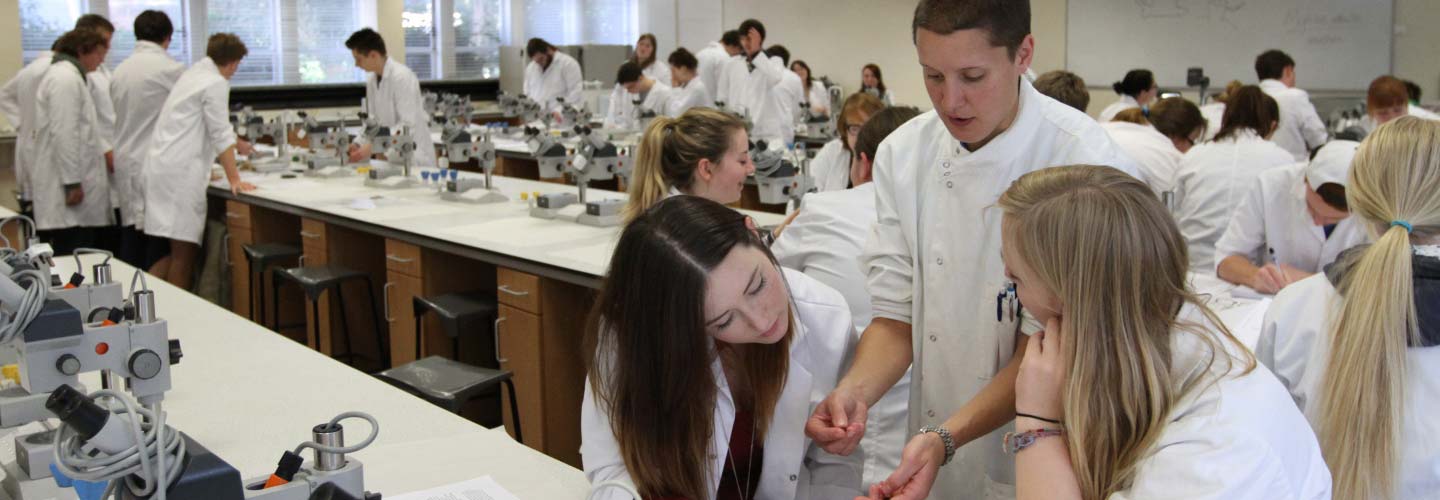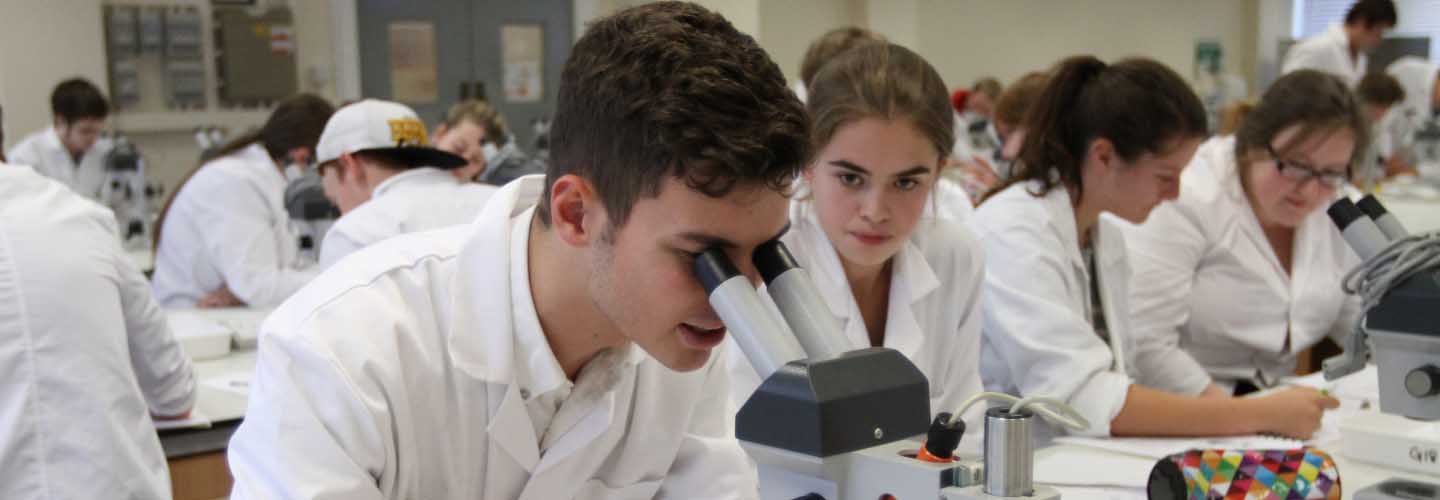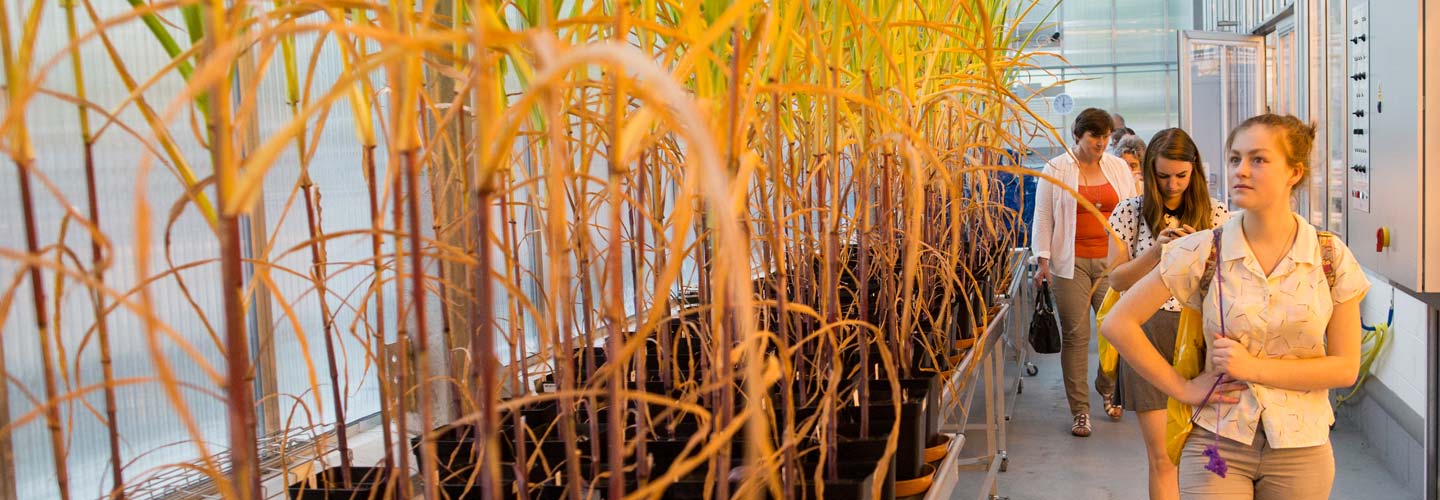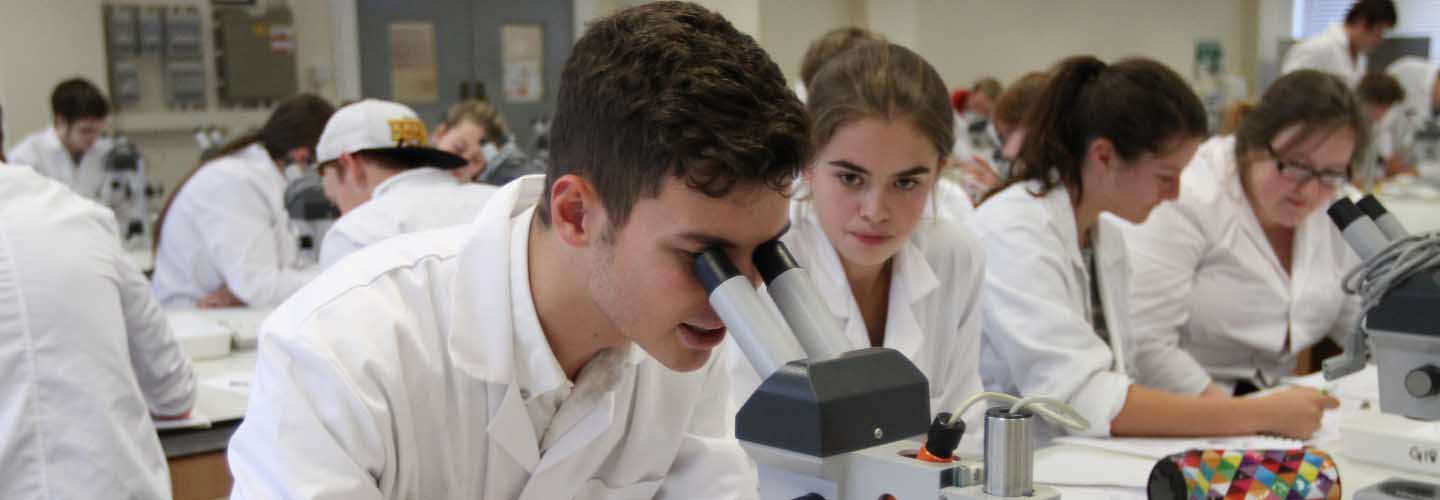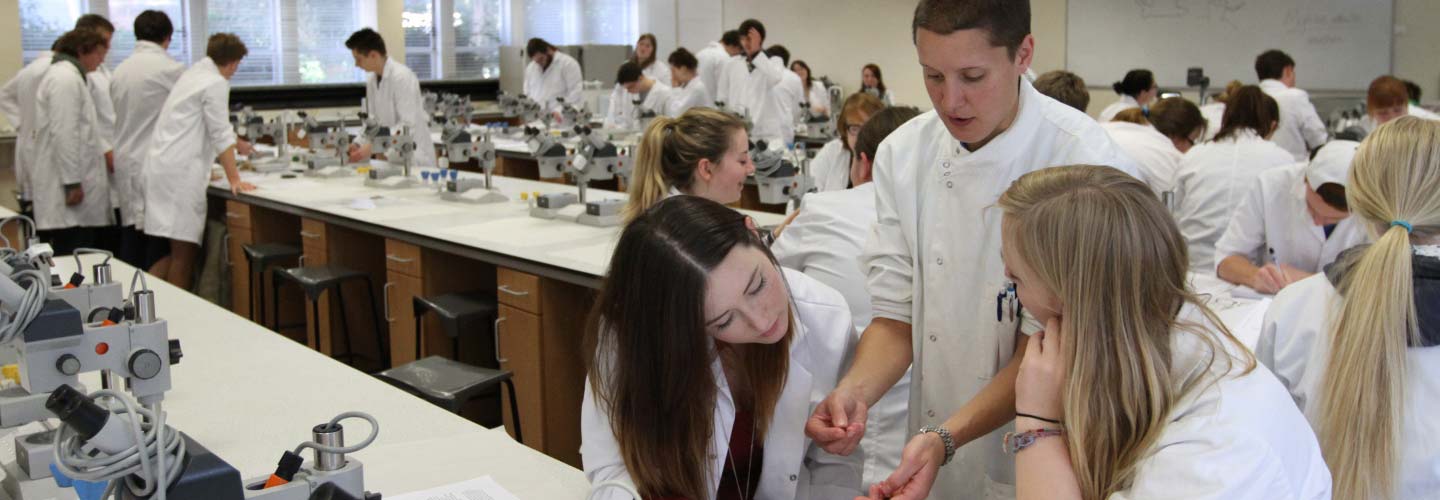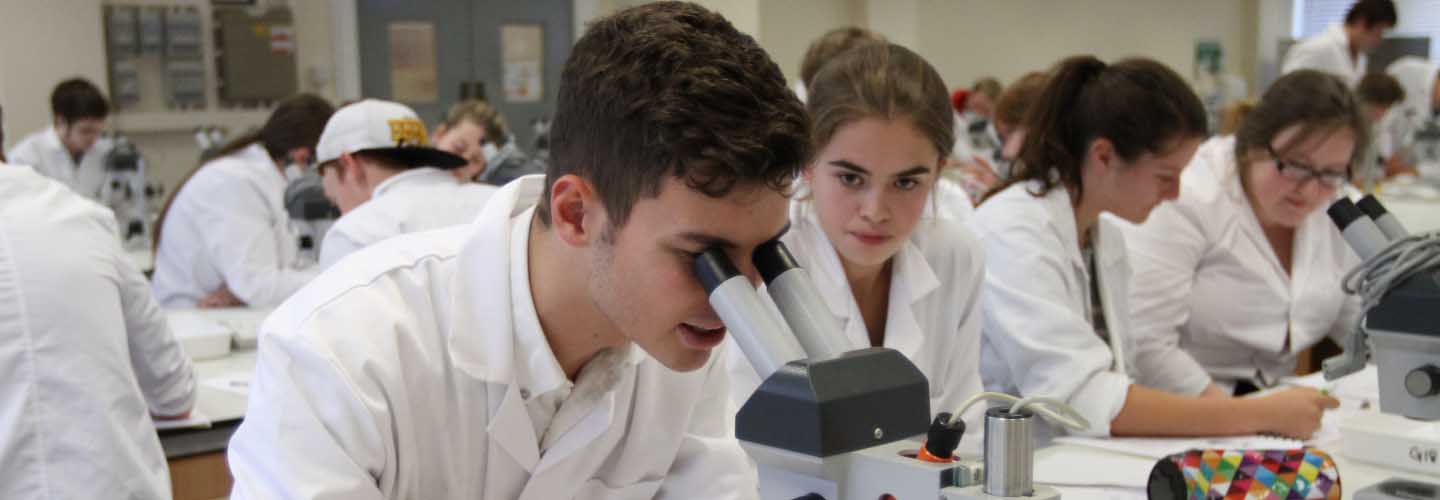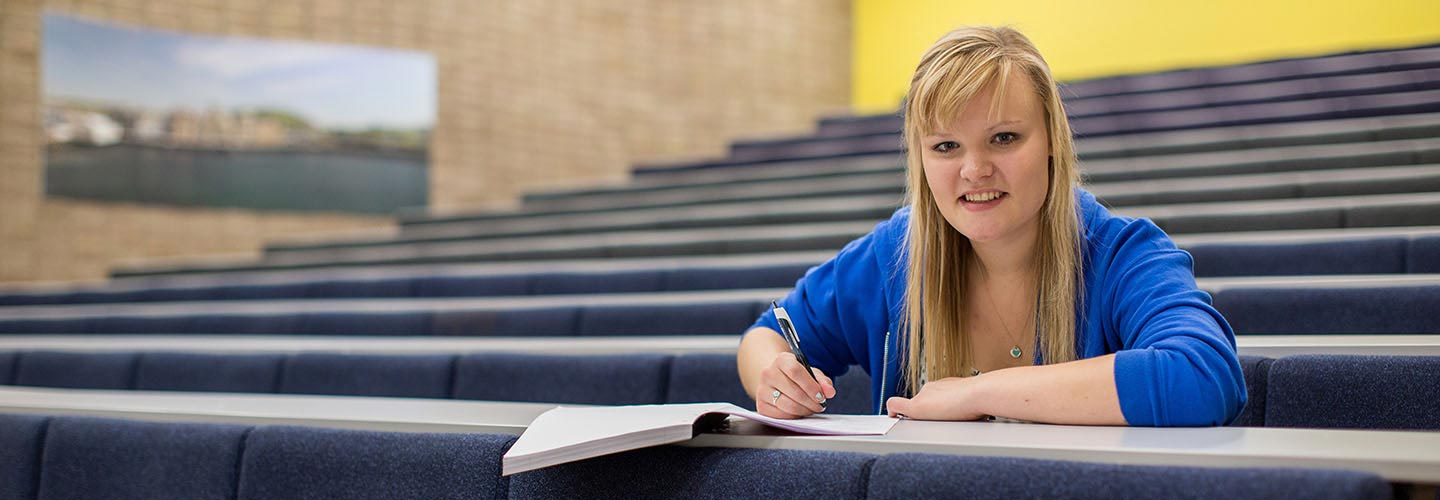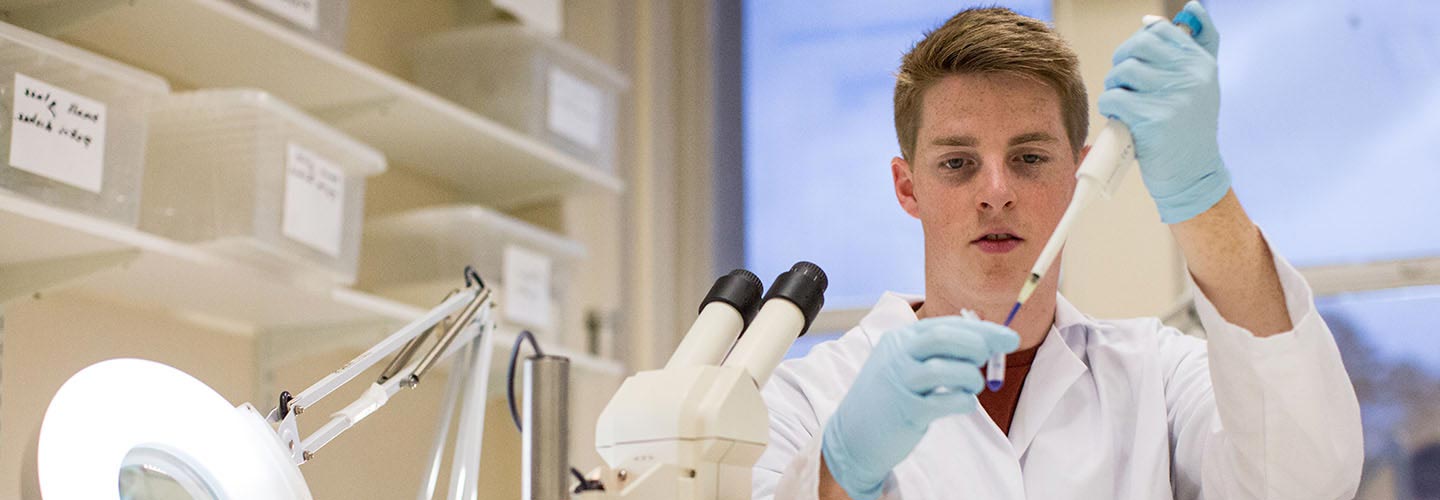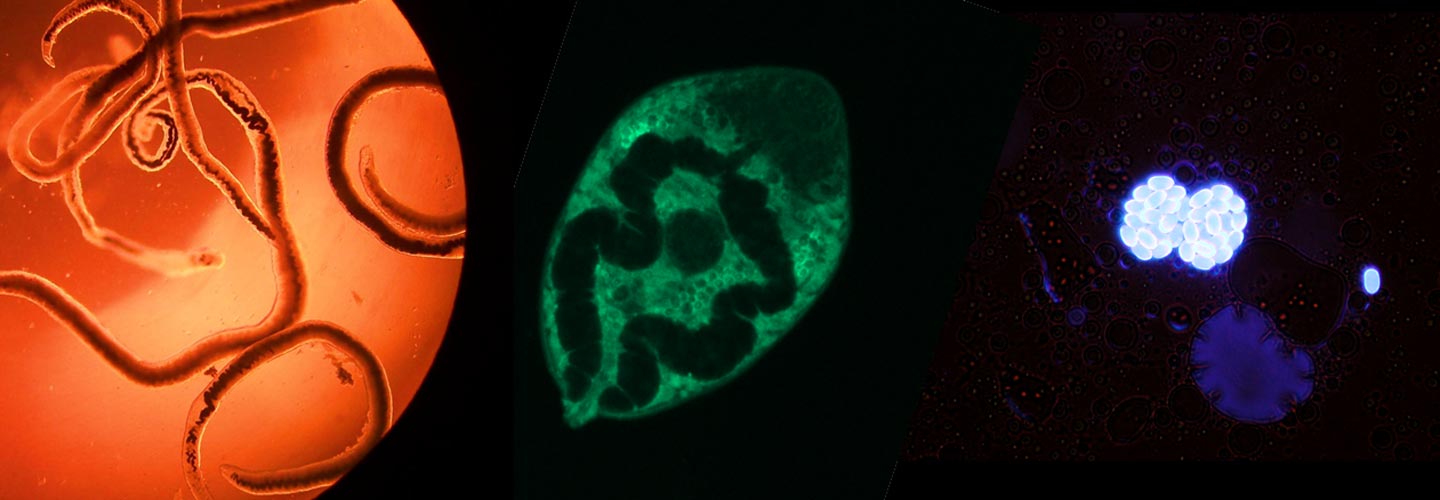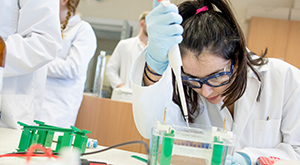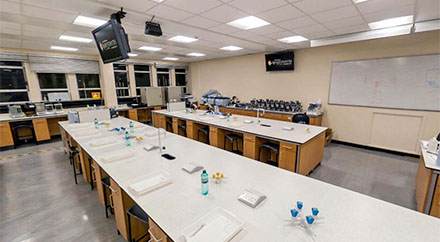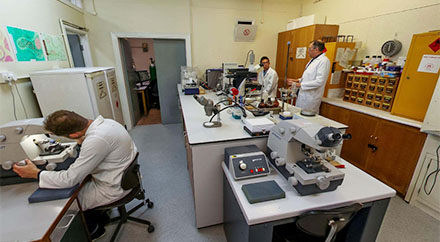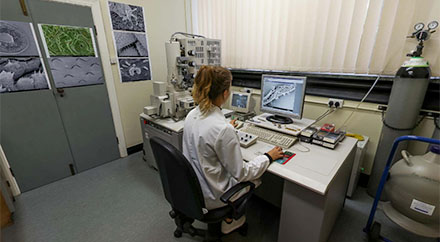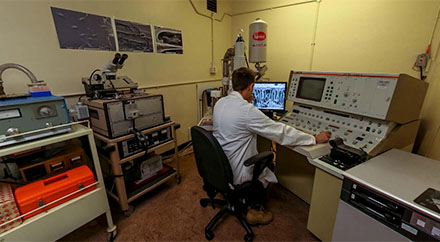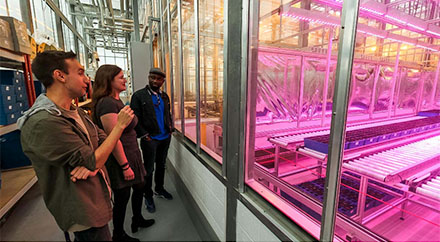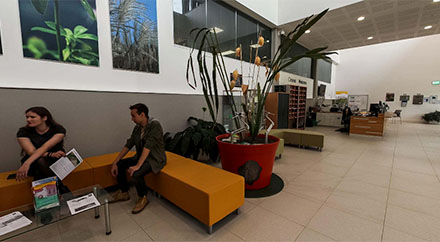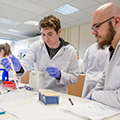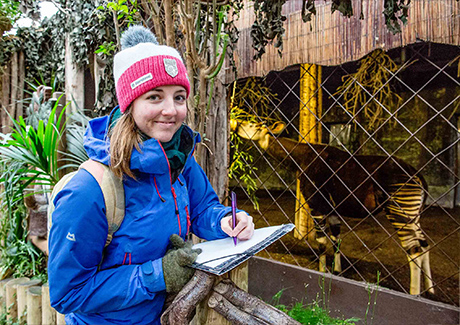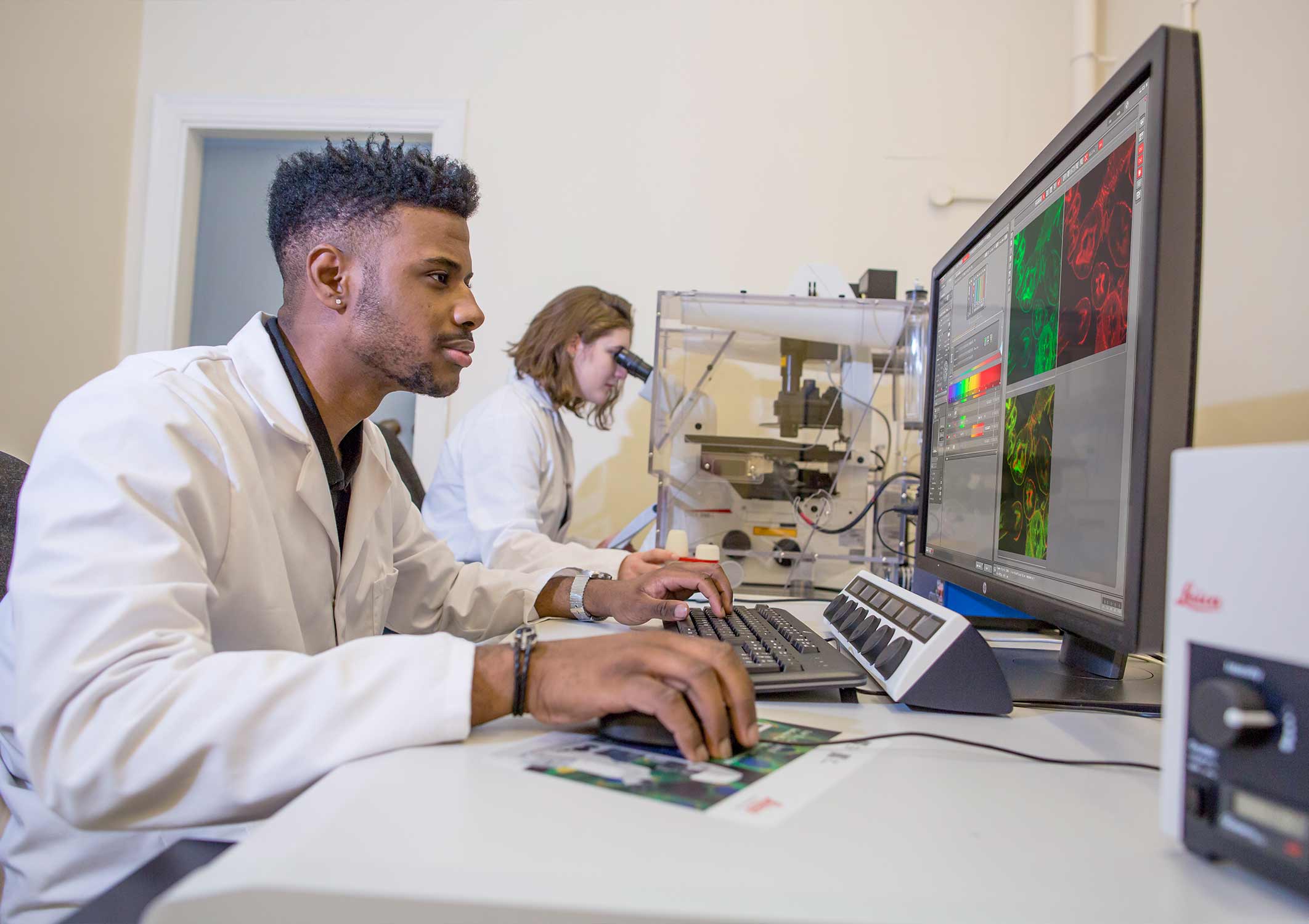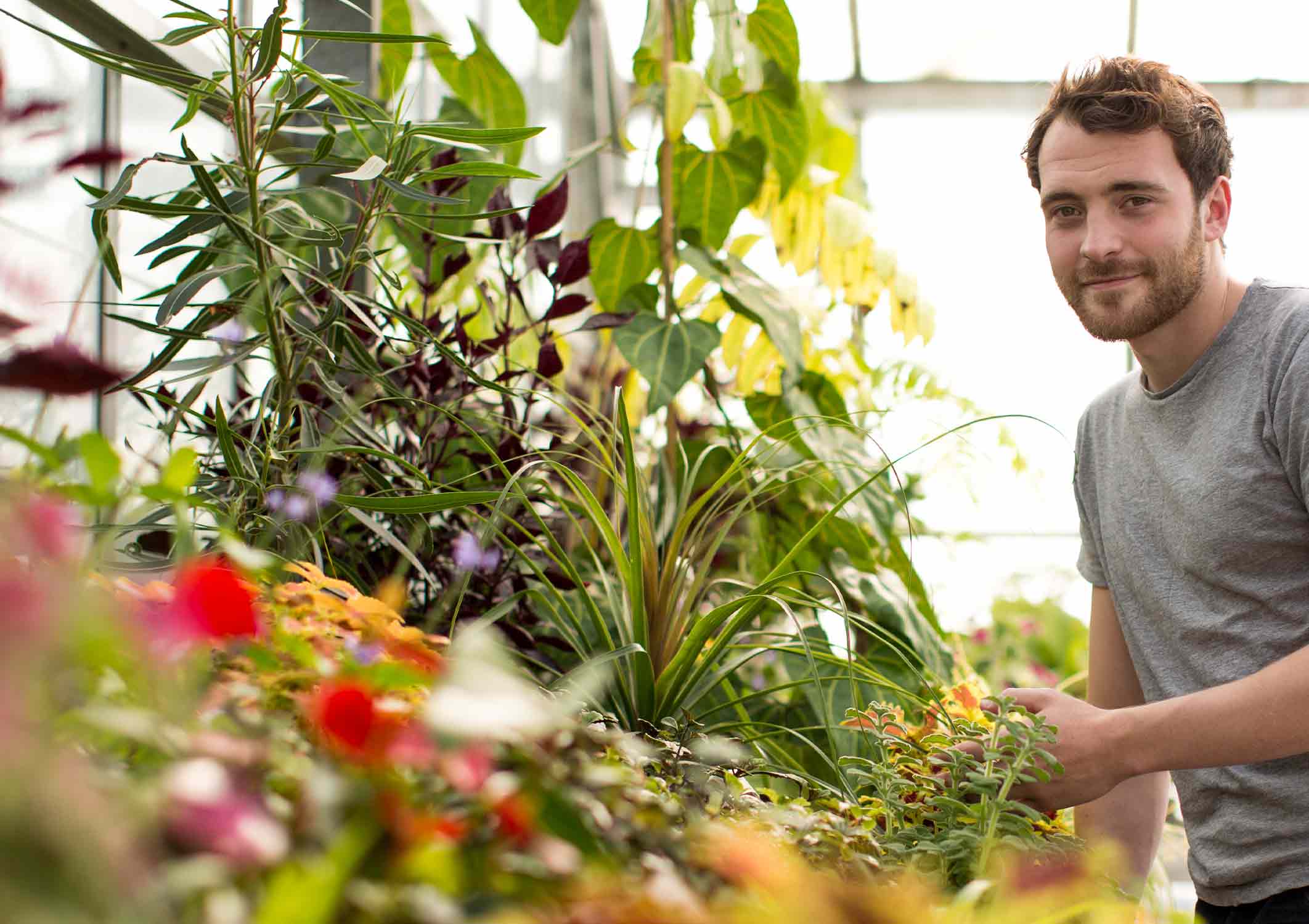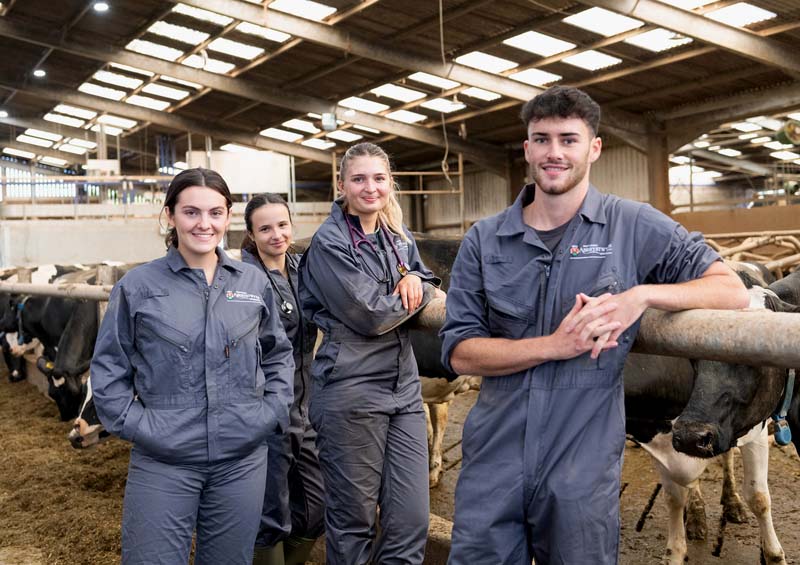Biosciences
Biosciences involves the study of fundamental life processes, of life and living organisms from the behaviour of single cells to entire ecosystems. From biology and biotechnology to genetics and microbiology, at Aberystwyth you will find a wide range of courses to choose from within the Biosciences.
Our flexible degree structures allow you to specialise in a particular area or study a broader range of topics within the Biosciences, allowing you to keep your options open.
Whatever your preferred discipline, you will find high quality teaching, state-of-the-art laboratories and cutting-edge equipment in our internationally recognised research and teaching department, to provide you with a superb learning experience.
Biosciences
Courses
Undergraduate Courses
Postgraduate Courses
Why study Biosciences at Aberystwyth University?
- You will be taught by passionate, engaged, friendly staff with expertise across the full range of biological topics.
- Your academic studies will be bolstered by a wealth of laboratory and field classes which build real scientific skills essential for your future.
- We will nurture both your intellectual curiosity and your general scientific practice.
- You will have access to our bio-imaging and microscopy suite, modern laboratories and fermentation facilities.
- You will have access to farms and woodlands for studying environmental microbes and those that impact on animal health.

